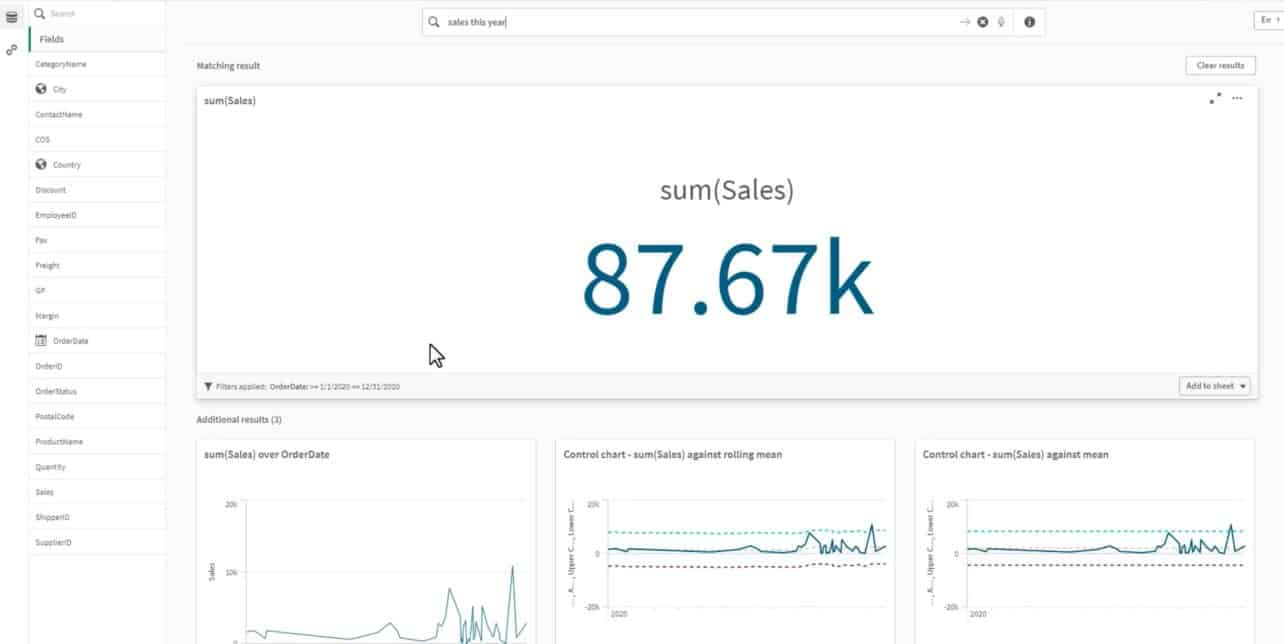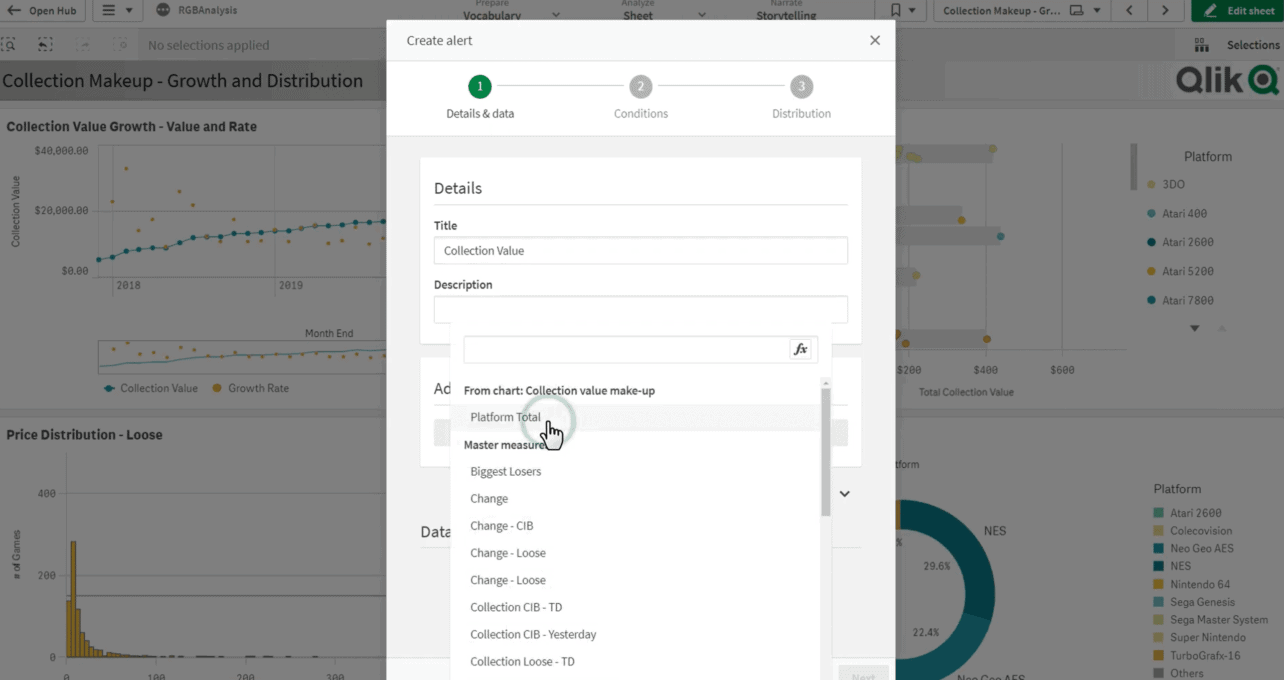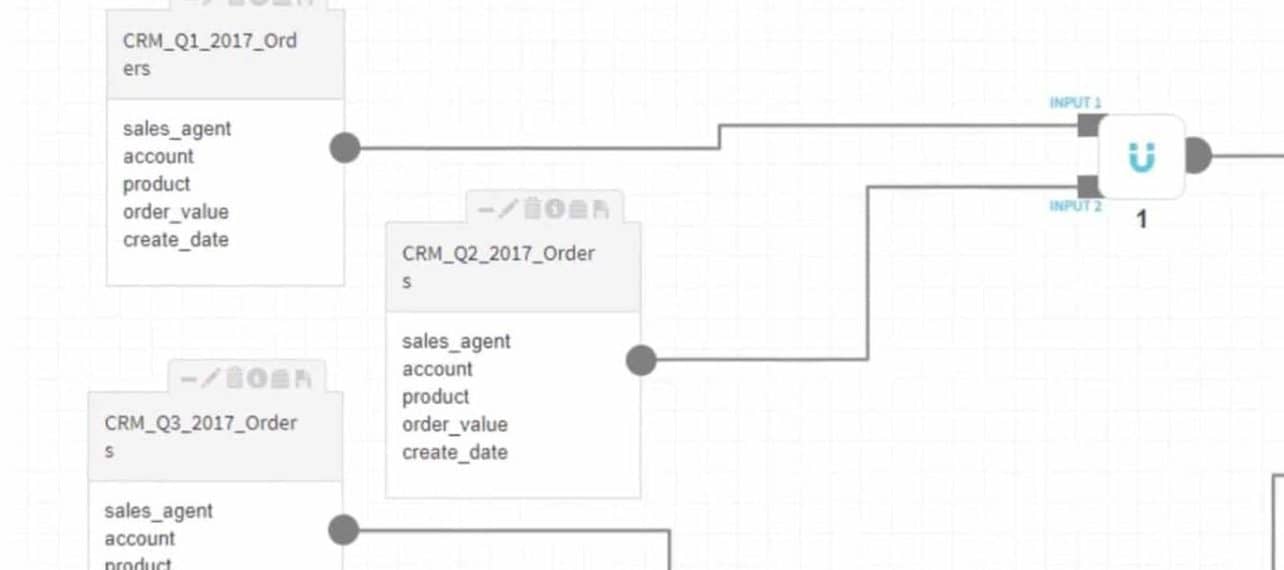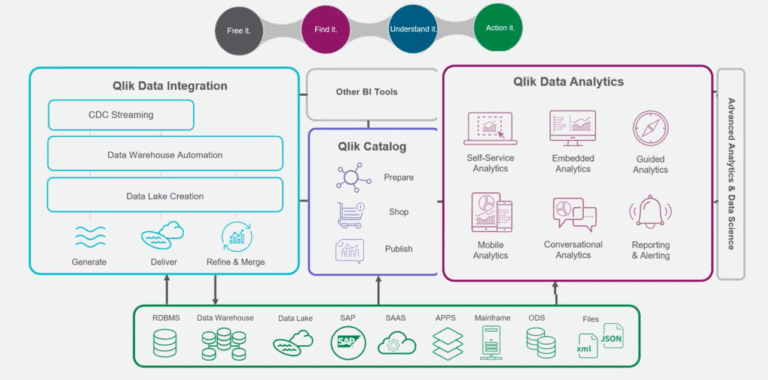The world of analytics is shifting towards Active Intelligence, according to data specialist Qlik. With Active Intelligence, an organisation takes a step forward into modernisation and is prepared for the future. During the recent Data Revolution Virtual Summit, Qlik discussed exactly what your business could achieve with Active Intelligence.
Active Intelligence is a business practise that Qlik has been focusing on for some time now. Companies that choose Active Intelligence continuously use data to make decisions and take action. This means running all types of data through analytics software and using that data as smartly as possible. This requires an end-to-end data platform: a good data integration and Business Intelligence (BI) product, combined with a good data warehousing solution.
According to Qlik, which offers data integration and a BI solution, Active Intelligence enables you to identify business opportunities and potential scenarios. This can support a business plan and enables you to make smart decisions quickly. As a result, your business is better prepared for what is to come. In an earlier article, we explained exactly how a business could achieve this.
Prepared for uncertain times
However, the reality is that the COVID-19 pandemic has turned the world upside down, and things have changed in the time since our last article. There have been several shifts affecting the operation and future of the Active Intelligence message.
According to Qlik, it is particularly noticeable that Active Intelligence contributes to being prepared for unexpected situations correctly responding to them. The Analytics approach captures signals at an early stage, allowing companies to anticipate upcoming trends. Good analytics tools, like Qlik and its competitors, generally seem to be useful in dealing with the disruption the pandemic causes.

For example, a webshop that is doing well as a result of the pandemic can predict that a certain product will become popular. Meanwhile, a sector like healthcare can anticipate high demand for specific resources at an early stage with data-based predictions. Analytics, therefore, enable organisations to make more accurate decisions to scale up or down, so they are better prepared for what is to come. This makes things a lot less unexpected.
Used by everyone
In addition to the fact that the right analytics applications provide additional value during the COVID-19 pandemic, the pandemic has also triggered other developments. In the IT world, for example, Qlik is seeing an important trend whereby Software as a Service is becoming “everyone’s new best friend”. SaaS has become a necessity for many companies to support working from home, as this model makes the software more accessible to users. Software tools no longer need to be physically deployed. A SaaS-based analytics solution can benefit from this.
Analytics is also changing for the general public. Qlik is seeing a change from ‘self-service’ to ‘self-sufficiency’. This means both regular users and data professionals expect to automatically gain insights based on analytics, without having to perform all kinds of complicated tasks. Users also expect detailed insights to be available. An increasing amount of employees want easier access to data.

Somewhat in line with facilitating for a broad group, is the development of a sudden mass consumption of data visualisation. There is great interest in COVID-19 and the data about the virus. As a result, everyone is getting involved with data. All of a sudden, many people are interested in detailed graphs about the spread of the virus. This is a good development for the democratisation of data: the efforts of analytics vendors to normalize working with data for a broad group of employees.
Professionals can also see shifts
According to Qlik, for data professionals, who are very relevant to complex tasks in the democratisation of data, interesting shifts are also taking place. For example, up-to-date data that can be used immediately is more important than ever. You don’t want to miss a sudden change when you’re preoccupied with making predictions. The pandemic has shown that sudden changes can occur. Real-time data is crucial for making the right decisions. The quality of the infrastructure is increasing, leading to good data becoming increasingly common.
Qlik is also seeing the use of artificial intelligence to find anomalies in the models developed by data scientists as a relevant development for the professionals. Normally, data scientists try to build reliable models by performing ‘what-if’-analyses. With AI, however, deviating scenarios can be found. Humans can sometimes only spot these scenarios after very deep analysis or even miss them altogether. AI appears to save time and reduce the chance of missing anomalies.

On the other hand, Qlik also sees that data-tools are opting more for the use of ‘alternative data’. This type of data is currently mainly used for financial purposes. Traditional data sources for investors are, for example, stock market applications, quarterly figures and press releases. However, many conclusions can also be drawn from public audio and photo sources. According to Qlik, including this type of data is becoming normal in all sectors, because these sources contain relevant figures and facts.
It also appears some barriers for cooperation between the data professional and their colleagues from other departments are disappearing. For a lot of people, working from home is obviously not ideal, but it has led to improvements to the accessibility of colleagues in other positions. Because of this, a data professional can more easily get input from a sales employee during data cataloguing activities. Therefore, it seems that data professionals can now generally more easily work with the people consuming the data at an early stage, improving results at the end.
Will there be a new generation of analytics?
Qlik states that all these developments together ensure that Active Intelligence takes a step forward and analytics enters a new era. A phase in which we act reactively and proactively based on data. Numbers don’t lie and can help in dealing with unexpected situations. Certainly, in a health crisis or an economic crisis, reactive and proactive action is important. And once the corona pandemic has ended, companies want to be prepared for the next disruptive event.
Such a new phase for BI often begins only once every ten to fifteen years. This also makes it interesting to keep a close eye on how analytics will develop in the time to come. In any case, Qlik clearly wants to play a role in this new era of BI, so that it can support companies in taking crucial decisions.
